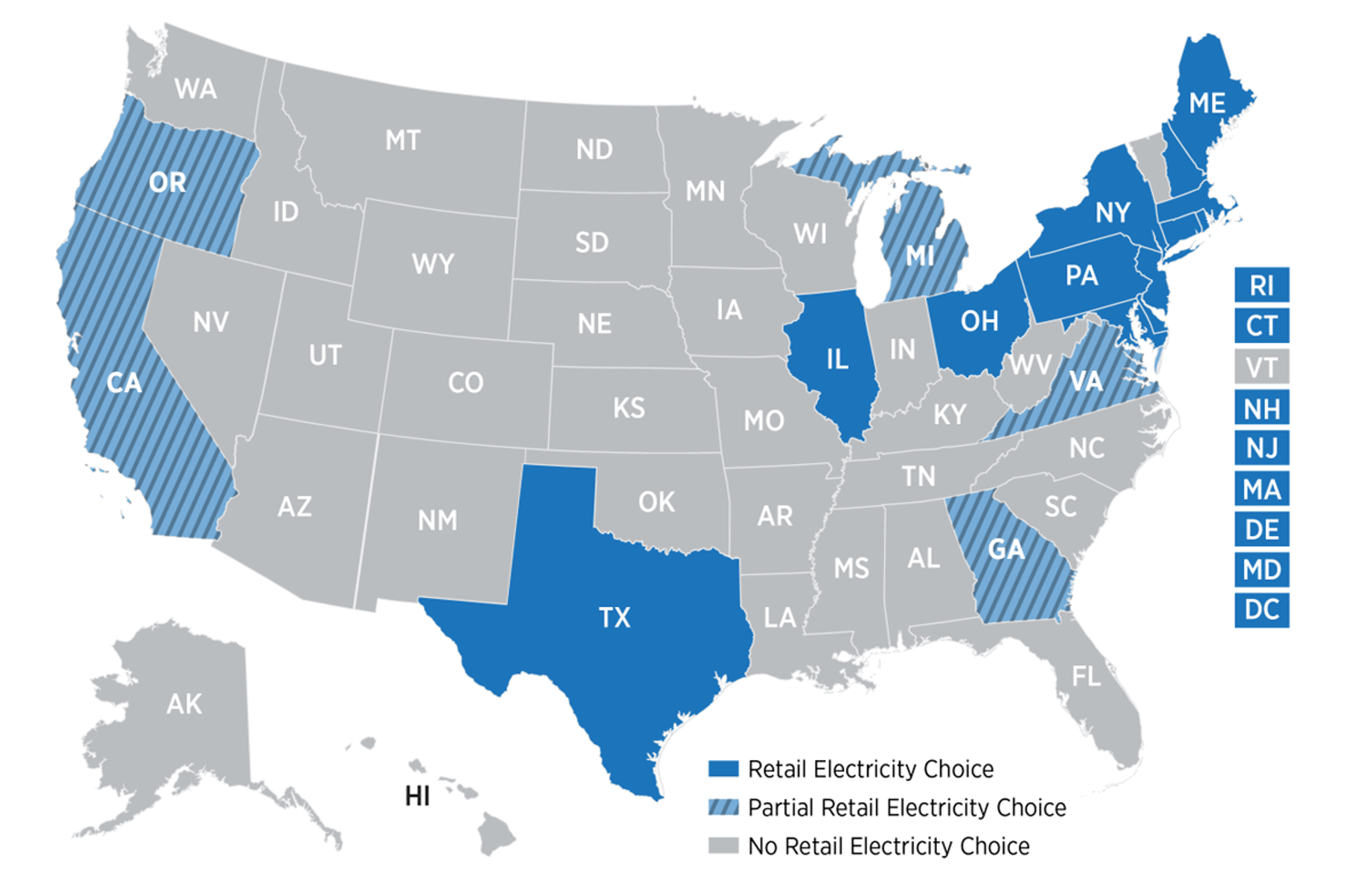Electrification and Resilience
Equitable Access to Electricity
An evaluation of the equity, justice, and efficiency impacts of retail electric deregulation in the Lehigh Valley and small Ohio cities.
Since the 1992 Energy Policy Act, 13 states and the District of Columbia currently allow companies to purchase energy from wholesalers and sell directly to consumers, diversifying from the utilities that have traditionally held monopolistic power over the generation, transmission, and distribution of energy. Changes in the regulation of energy markets have been intended to increase efficiency and competition at both the wholesale and retail levels. However, scholarship on energy markets has focused almost exclusively on deregulation at the wholesale level. By examining deregulation at the retail level, this project illuminates the impacts of deregulation on individual consumers, highlighting the sociopolitical implications of electricity market management.

Retail electricity markets have the potential to increase social and ecological welfare, as consumers—including municipalities—might choose energy generated by renewable sources or find offers that provide desired attributes, meaning they are more affordable than those offered by a traditional utility or offer a fixed rate for a longer period than traditional rates offered. Yet, research also suggests that the negative impacts of these markets are unequally distributed: price heterogeneity has a disproportionately negative impact on low-income communities, and retail electricity offers tend to undercut the standard service offer under volatile market conditions mostly. Successfully navigating the retail electricity market requires that consumers closely monitor electricity prices and familiarize themselves with a complex array of variables. Therefore, consumer outcomes are highly dependent on the characteristics of consumers themselves.
As such, this project works with residents, learning about their experiences with electricity suppliers and their utility choices, and collaborates with community partners in order to raise awareness. These conversations will help ensure equitable access to electricity for consumers across the socioeconomic spectrum.